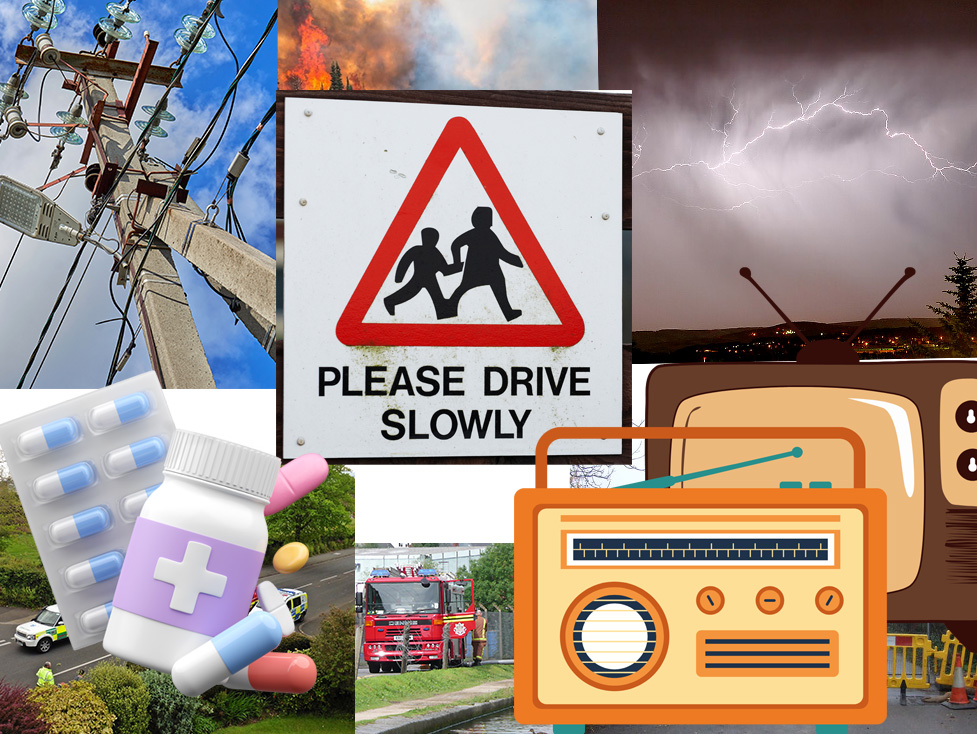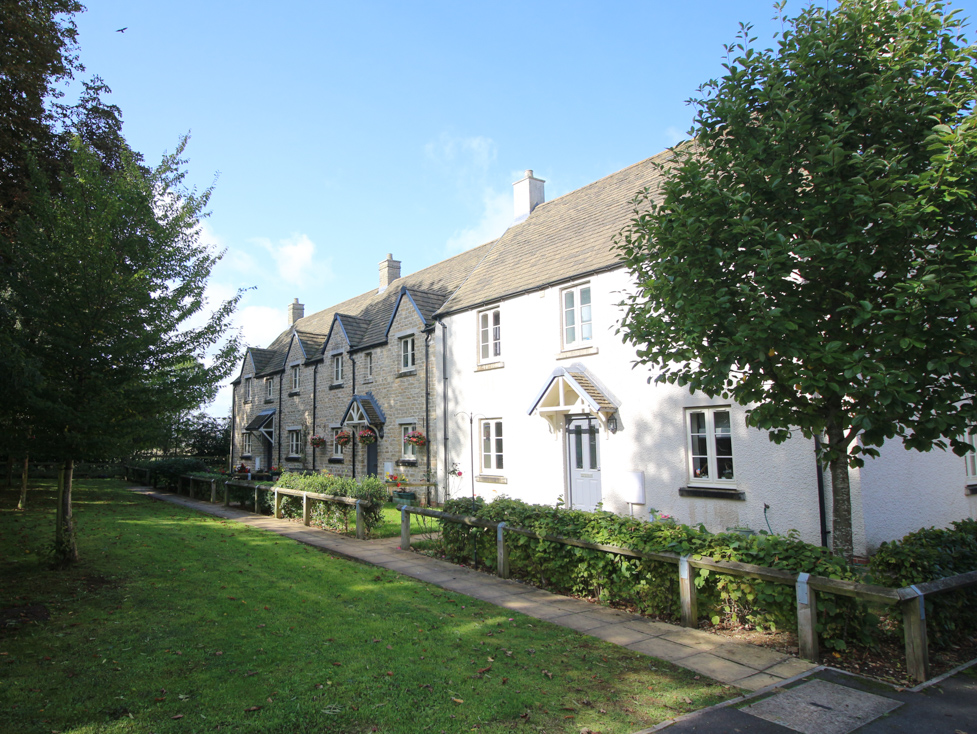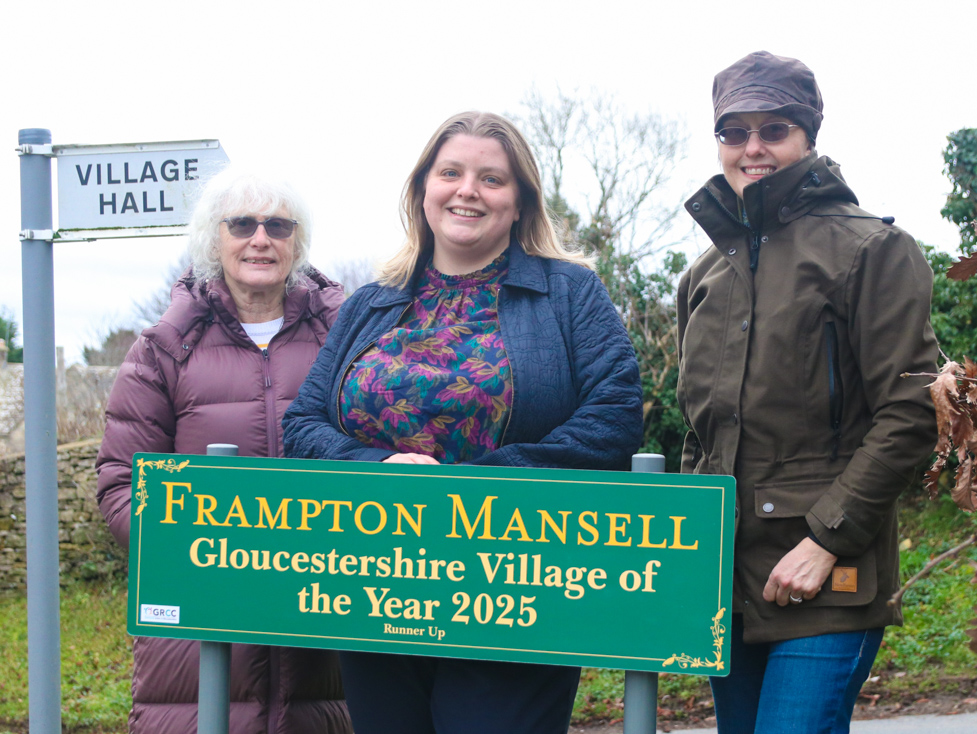- News & Events
- /
- Protect Your Family: Preparedness Month 2025

23 Sep, 2025
Protect Your Family: Preparedness Month 2025
GRCC's Community Resilience Officer Lucy Eccles continues her series of weekly blogs for Preparedness Month:
Welcome to week 4 of Preparedness Month! Last week we explored how to effectively make a plan for emergency situations, and this week we are going to focus on how you can help protect your family when a crisis hits.
Action Counters Terrorism
Public safety is a shared responsibility. Terror attacks are usually unexpected, but being alert to unusual behaviours can help prevent harm before it happens.
The UK government has put together a campaign called "Action Counters Terrorism", which includes advice on how to spot the signs of terrorism, which can be accessed here . By being vigilant for these signs, you can help protect your family when out and about.
Action Counters Terrorism also has a reporting tool. If you're not sure of something, call 0800 789 321 in confidence – no name needed, calls aren’t recorded.
You can also explore the campaign and sign up for free “Act Awareness” e-learning here .
GRCC offers support to community buildings, including advice on Martyn’s Law, which is a law that requires public venues and events to improve their security against terrorist attacks. For more info, please contact cdt@grcc.org.uk
Medicines
It's important to keep your household well stocked with basic medical supplies and a first aid kit, to deal with minor accidents and prevent any medical conditions from escalating.
However, you must correctly store and use home medicines. You can do this by following these top tips:
- Always follow the directions on medicine packets, and never take more than the stated dose
- Always keep medicines out of the sight and reach of children – keep medicines high up and locked up!
- Be sure to check the expiry dates on medicines – if a medicine is past its use-by date, do not use it or throw it away: always take it to your pharmacy, where it can be disposed of safely
- Always speak with your pharmacist if you are unsure about what is appropriate for your condition.
The Royal Pharmaceutical Society publishes advice on which medicines to keep in your household medicine cabinet.
NHS Wales has published information on what to include in a first aid kit here .
Go In, Stay In, Tune In
During an emergency, you might be asked to ‘Go In, Stay In, Tune In’ until you get the all clear. This could be for a few hours or a few days.
Gloucestershire’s Local Resilience Forum (LRF) recommends these actions if you believe you may be in danger:
GO IN to a safe building.
STAY IN until you are advised to do otherwise.
TUNE IN to local TV or radio for more information.
For more info, see Gloucestershire LRF’s ‘Are You Ready’ booklet here .
Prepare Your Kids
Emergency situations can be particularly overwhelming for children and young people, so it's a good idea to introduce emergency preparedness activities to children in a sensitive and age-appropriate manner.
Luckily, the British Red Cross has created a handy set of resources for children called the " Pillowcase Project" so you don’t have to! This includes lots of handy worksheets and activities designed to introduce children to the idea of household planning.
THIS WEEK'S CHALLENGE : Sit down with your kids and teach them how to call for help in an emergency by phoning 999.
Download Some Apps
One of the many ways we can prepare for emergencies is to download some of the useful and potentially life-saving apps available on our digital devices.
For example, the British Red Cross First Aid App has guidance on how to administer first aid for lots of different health emergencies, and how to prepare, cope and respond to emergencies such as extreme weather, road traffic accidents, and even earthquakes!
Remember – only download apps from trusted providers, and always keep a battery powered phone charger charged up in case of an emergency.
At GRCC we ensure that our volunteers are kept up to date via digital means as well as in person. For example, our Volunteer Flood Wardens receive regular e-newsletters with preparedness and resilience information, and resources that they could share with their community. If you would like to volunteer as a Flood Warden, please contact us on cdt@grcc.org.uk or 01452 528491.
If you would like individual or organisation support about using or accessing digital services, please contact digital@grcc.org.uk for more information.
Road Safety
Road safety affects everybody – whether we are driving, cycling, or walking.
How safe do you feel on the road?
Improve your community's road safety with practical ideas and solutions from GRCC’s CARS (Community Approaches to Road Safety) Toolkit.
By following the tips in our toolkit, you can help keep everybody in your communities aware of road safety principles.
Prepare Offline Entertainment and Comfort Items
Unfortunately, emergencies can mean long delays and lots of waiting, and it is not just kids who get bored and frustrated. By preparing the offline entertainment and comfort items you might want in a crisis, you can help to ensure that morale and mental wellbeing are maintained. This will help you be in a better mental state to respond to the emergency effectively. Your wellbeing and entertainment kit can include items such as teddies for young ones, a pack of cards, books, games, and whatever else would help your family pass the time and stay comfortable.
To sum up the message for this week: you never know when an emergency will strike, but by taking simple steps now, like making a household plan, and keeping essentials at the ready, you can help protect your loved ones and keep everybody safe.
Remember to check out The Emergency Planning Society’s next Preparedness Month live session on Friday 26th September at 11:00am on Microsoft Teams here .
That's all for this week. Keep an eye out next week for my last blog for Preparedness Month, when I will be looking at how you can get involved and help boost community resilience in your local area. And remember - if you would like support to help your community improve its resilience, do get in touch with me via cdt@grcc.org.uk or 01452 528491.



